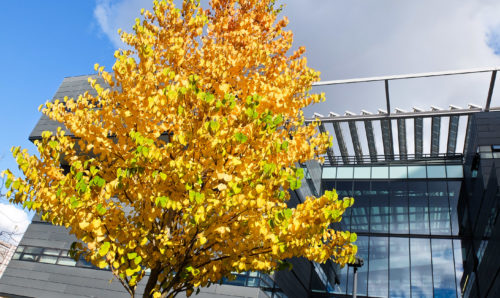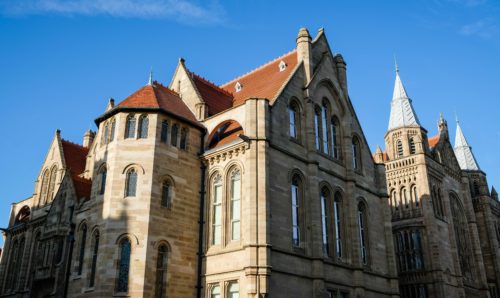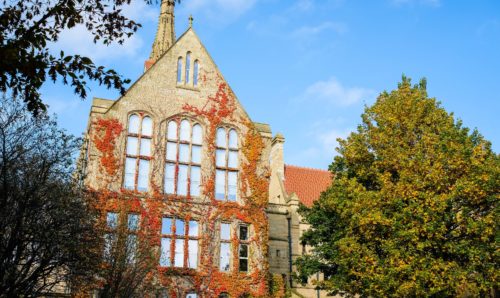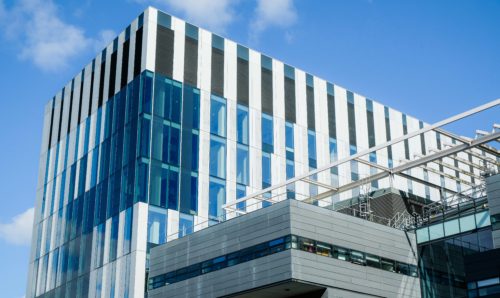
Max Newman
Welcome to Maths 11th May 2020
In this historical feature we explore Max Newman (1897-1984) and his influential work. Max Newman was the first person in Britain to contribute to modern topology. He made a significant contribution to the British success in deciphering German messages and he was a particularly effective academic manager. MHA Newman’s early work was in Cambridge where […]

Joan Walsh
Welcome to Maths 28th April 2020
In this historical feature we explore Joan Walsh (1932-2017) and her influential work. Joan Walsh is known for her contribution to the development of Numerical Analysis and Scientific Computing at the University of Manchester and in the UK more generally. She also had a major impact on undergraduate teaching at the University of Manchester. After […]

Louis Mordell
Welcome to Maths 21st April 2020
In this historical feature we explore Louis Mordell (1888-1972) and his influential work. Louis Mordell was a distinguished number theorist. In Manchester he discovered one of his best known results, namely the finite basis theorem (or Mordell–Weil theorem), which proved a conjecture of Henri Poincaré. He also made a conjecture about algebraic equations that became […]

James Lighthill
Welcome to Maths 15th April 2020
In this historical feature we explore James Lighthill (1924-1998) and his influential work. James Lighthill was known for his pioneering work in the fields of hydrodynamics, wave mechanics, aerodynamics, biomechanics, and for creating the field of aeroacoustics. His studies on supersonic flows proved vital in the development of the Concorde supersonic airliner. In 1946, Lighthill […]

Cornelius Lanczos
Welcome to Maths 7th April 2020
In this historical feature we explore Cornelius Lanczos (1893-1974) and his influential work. Cornelius Lanczos discovered an exact solution to the Einstein field equation. It is one of the simplest known exact solutions in general relativity and is regarded as an important example. Watch him talk about mathematics, his work with Albert Einstein and his […]

Sir Horace Lamb
Welcome to Maths 2nd April 2020
In this historical feature we explore Sir Horace Lamb (1849-1934) and his influential work. Horace Lamb made important contributions to applied mathematics, in particular to acoustics, seismology and fluid dynamics. He is best known for his book Hydrodynamics, which with his several other textbooks played a major role in university teaching and research for many […]

Brian Hartley
Welcome to Maths 31st March 2020
In this historical feature we explore Brian Hartley (1939-1994) and his influential work. Brian Hartley is known for his outstanding work in many different areas of group theory. He made important contributions to the theory of locally finite groups, group-rings, soluble groups, simple groups, permutation groups, linear groups and representation of groups. Hartley spent periods […]

Sydney Goldstein
Welcome to Maths 26th March 2020
In this historical feature we explore Sydney Goldstein (1903-1989) and his influential work. Sydney Goldstein made fundamental contributions in fluid dynamics, especially aerodynamics. After his studies at Leeds and Cambridge, Goldstein became a Fellow of St John’s College, Cambridge, in 1929. In the same year he was appointed Lecturer in Mathematics at Manchester, where the […]

Frank Adams
Welcome to Maths 24th March 2020
In this historical feature we explore Frank Adams (1930-1989) and his influential work. J Frank Adams made fundamental advances in algebraic topology. He wrote five extremely influential textbooks on the subject and was one of the founders of stable homotopy theory. After studying in Cambridge, Adams moved to Oxford as a Junior Lecturer. In 1957 […]

Hanna Neumann
Welcome to Maths 16th March 2020
In this historical feature we explore Hanna Neumann (1914-1971) and her influential work. Hanna Neumman (born von Caemmerer, 1914) was a prominent group theorist, most well known for her work on varieties of groups. She was an eminent mathematician, and at the same time the mother of five children (almost all of whom went on […]

